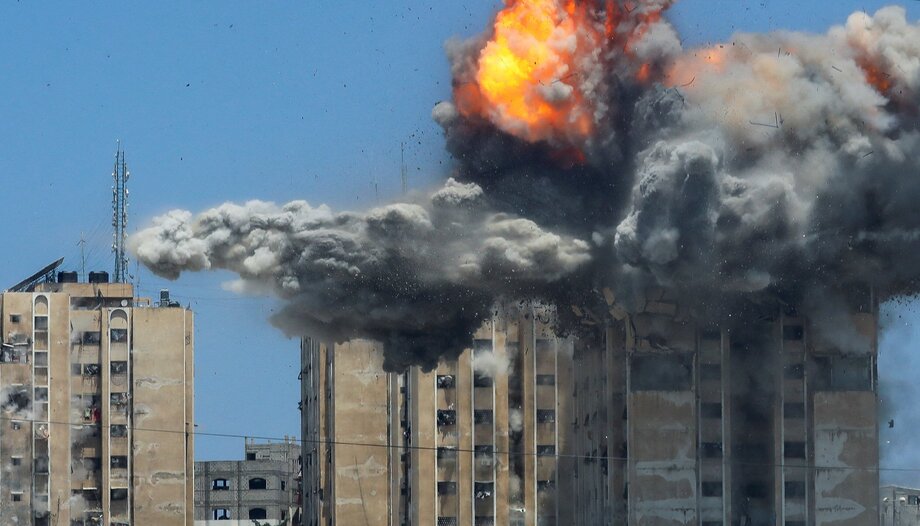Pope Francis has insisted since the beginning of his pontificate on the danger of the Third World War "in pieces" that is unfolding. One of the latest warnings came during his address to the Diplomatic Corps accredited to the Holy See in January 2024.
To find out if this qualification of the Pontiff can really be applied to the situation of current warfare, Omnes spoke with María Teresa Gil Bazo, Professor of International Law at the University of Navarra. She explains that "what defined the so-called world wars was the explosion of armed conflicts on different continents, in alliances and battles fought beyond the territory of the states involved. The increase in armed conflicts in recent years has seen the multilateral action of states in different territories beyond their borders. In this sense, we can speak of an undeclared Third World War".
With open fronts in different countries of the world, tension on the international level is increasing. While the Pope insists on the shared responsibility to build for "future generations a world of greater solidarity, justice and peace" (Pope Francis, Message for the World Day of Peace 2024).
The Pope's warnings are justified. According to the Geneva Academy of International Humanitarian Law and Human Rights, at least 6 international conflicts are currently underway. However, there are more than 110 violent local clashes in various territories. Faced with this situation, the Pontiff cries out for peace and asks for prayers in all his general audiences and in a multitude of public interventions.
War in Ukraine
One of the flashpoints that Francis mentions the most is the war between Ukraine and Russia. The current conflict broke out on February 24, 2022, although its precedents are much earlier. Many authors point out that the beginning of the war was the "Euromaidan," unrest that took place in Ukraine for several months in 2014 over Russian interference in the country's politics. Soon after, Russia's annexation of the Crimean peninsula followed, which increased the tension. However, the severity of the conflict reached its climax on February 24, 2022, when the Russian army invaded Ukrainian territory.
From the very first moment of the invasion, the events took on an international tinge. The governments of several countries reacted to the Russian advance and denounced the actions of Putin and his army. Many nations have offered assistance to Ukraine during these two years, although it is true that there are other countries that support Russia.
The economic impact of this war is very high, but Pope Francis constantly highlights the consequences of the war for the people of the territory. Many Ukrainian citizens have had to move to escape the bombings and the United Nations has pointed out that this is the largest refugee crisis since World War II. In this regard, Dr. Gil Bazo points out that "since February 2022 more than six million Ukrainian refugees have arrived in Europe".
Faced with this situation, European countries have had to respond quickly and effectively, including, as the Navarra professor points out, "the granting of temporary protection for the first time in the European Union to all Ukrainians just a few days after the Russian invasion of Ukraine". This reaction, she continues, "teaches us that there are no 'refugee crises', but crises in the responses to protection needs". This idea is shared by Pope Francis, when he publicly calls on many occasions for countries to be generous in welcoming people fleeing the fighting.
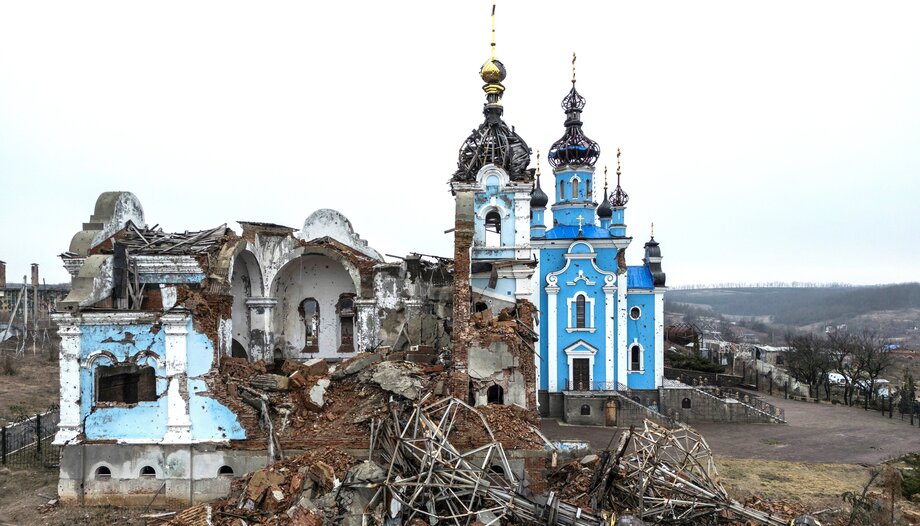
Israel and Palestine
Another frequent mention of the Pontiff is the war in Gaza between Israel and Palestine. Although the confrontation between these blocs has been making headlines since October 7, 2023, the reality is that this war has been going on for more than 75 years.
In 1948, the United Nations decided to divide the Mandate of Palestine, which had been in the hands of the British, into two different States: one Jewish and the other Arab. While the first group accepted this division, the Arabs opposed it, arguing that the division implied for them a decrease in the territory they had held up to that time.
Despite the refusal of the Arab side, on May 14, 1948, the Jews declared Israel's independence. Almost immediately, the international community recognized the new state, thus ignoring the claims made by Palestine. From that moment on, the Arabs declared war on the Israeli state, but they did not achieve victory and thousands of Palestinians were displaced far from the territory.
Since 1948 Palestine and Israel have been at loggerheads over this issue. However, experts believe that a truce or agreement to resolve the conflict is very difficult to reach. In December 2023, Omnes was able to interview two people, a Jewish woman and an Arab woman, who spoke about the current standoff in Gaza. Both agreed that a resolution to the war is complicated to reach, as neither side wants to give in to the demands of the other.
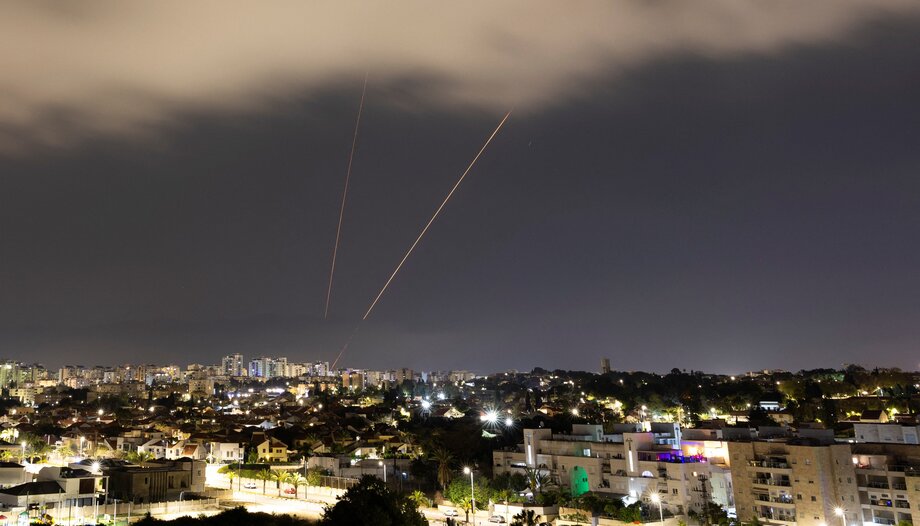
The main demands for an end to the war are incompatible. Both Israel and Palestine demand that the other state recognize their authority over the disputed territory. These are mutually exclusive demands on which it is almost impossible to reach a middle ground.
International experts have proposed three different solutions. On the one hand, some think that the best way to end the conflict would be the creation of a single federal state in which Israelis and Palestinians coexist. Others think that the establishment of two separate states should be accepted, as was proposed by the United Nations last century and suggested by the Pope. Finally, there are those who believe that three different States should be formed, without Palestine being properly speaking one of them, but with Israel, Egypt and Jordan living side by side.
It is not easy for any of these proposals to be accepted, which is why the flames of war are still burning after all these years. In spite of this, Pope Francis frequently insists on the need for dialogue. He demands that political leaders think of the generations that are suffering the drag of the conflict. In his address to the diplomatic corps accredited to the Holy See in January 2024, he made an "appeal to all parties involved to agree to a cease-fire on all fronts, including in Lebanon, and for the immediate release of all hostages in Gaza."
Fire in Africa
Africa is also a zone of conflict, even though the Pontiff does not mention it so often. While it might seem that the clashes on the African continent have more of a local tinge, the reality is that their consequences can be felt all over the planet.
Obviously, one of the major crises caused by war in Africa is the migration of millions of people to other countries. However, the importance of these conflicts lies not in the consequences for the countries hosting the migrants, but in the destruction they are causing within Africa.
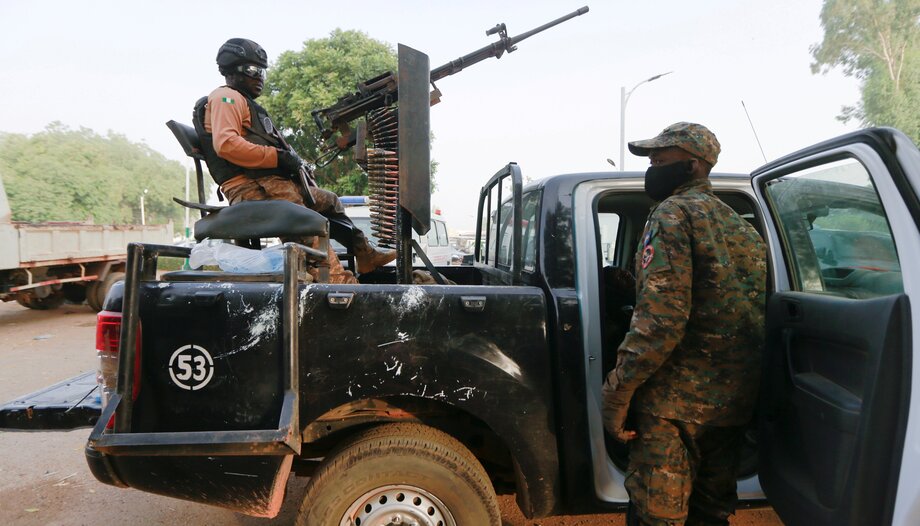
The aforementioned Geneva Academy of International Humanitarian Law and Human Rights ranks Africa as the continent with the second highest number of armed conflicts on the planet. Specifically, it notes that 35 conflicts are ongoing in Burkina Faso, Cameroon, the Central African Republic, Sudan, South Sudan, Somalia, Senegal, Mali, Mozambique, Nigeria and the Democratic Republic of Congo.
For its part, the "International Crisis Group" organization closely monitors, thanks to the collaboration of experts, the situation of clashes around the world. In a tracking list that they update every month, they mention the situations that are worsening. In February 2024 they indicated that hostilities are escalating in Mozambique, the Democratic Republic of Congo, Guinea, Senegal, Chad, South Sudan and Burkina Faso.
Many conflicts in Africa are caused by terrorist groups attacking different groups or are battles over territory, but political instability is not conducive to progress towards peace.
Tension in America
On the other side of the ocean, on the American continent, tensions are also very high. On the one hand, there are the multitude of conflicts in which the United States is currently involved: Yemen, Somalia, Niger and Syria. The role of the American power is frowned upon by many actors in the international community, who criticize the US involvement in local events in other countries.
Some armed conflicts are also being waged within the Americas, especially in Colombia and Mexico. Although the Geneva Academy of International Humanitarian Law and Human Rights does not consider these conflicts to be international clashes, it is true that they add to the long list of tensions accumulating in the Americas.
Developments in Mexico are particularly important, as several waves of violence have taken place during 2024 that have plagued the country. The fight against drug cartels and gangs is far from a peaceful end at present. This has caused thousands of Mexican migrants to cross the U.S. border to seek refuge.
At the same time, Haiti has made international headlines. Gangs took control of the country in the face of government inaction. Since then, violence has taken to the streets and the administration has imposed a curfew after declaring a state of alarm.
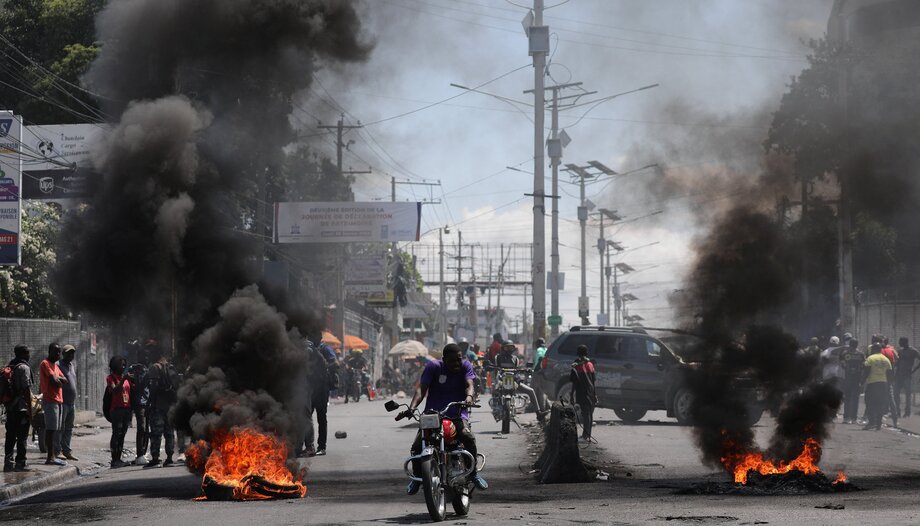
Silence in Armenia
Readers will recall that in December 2023 Omnes published an extensive report on the situation in Armenia. Following a massacre in which more than 20,000 Armenians lost their lives in 1920, the citizens of this country have gone through several armed conflicts involving the Soviet Union and, especially in recent years, Azerbaijan.
After two bloody wars in less than three years, the Armenians have had to abandon part of the territory, in particular the Artaj area which has passed into the hands of Azerbaijan. Not only that, but the Azerbaijani government started in 2023 a process to erase Armenia's presence in the territory. However, as Middle East expert Gerardo Ferrara explains, "from documents in the possession of historians, it is known that Artsakh, or Nagorno Karabakh, has been Armenian land at least since the 4th century AD and a dialect of the Armenian language is spoken there."
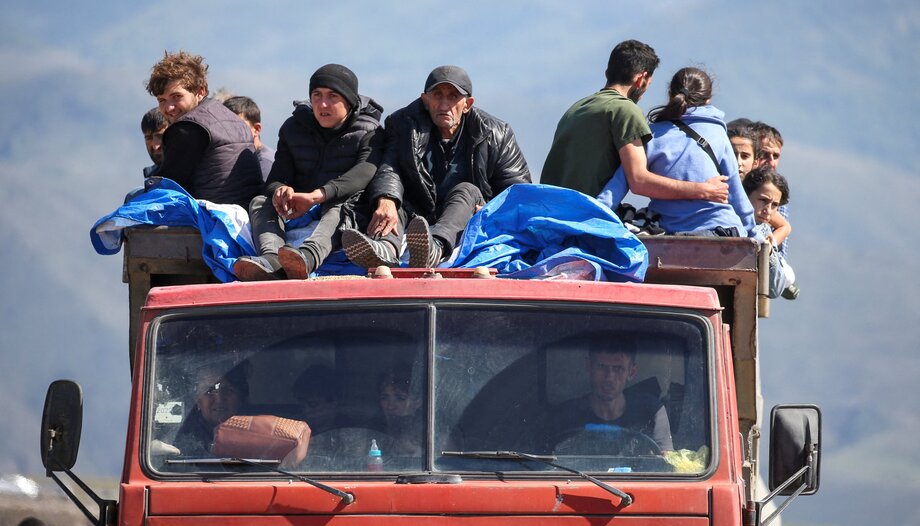
The little media coverage of what is happening between Armenia and Azerbaijan is giving rise to a "silent genocide", denounced, however, by Pope Francis, who in turn stresses the urgency of "finding a solution to the dramatic humanitarian situation of the inhabitants of that region, encouraging the return of the displaced to their homes in a legal and safe manner, as well as respecting the places of worship of the various religious denominations present in the area" (Address to the diplomatic corps accredited to the Holy See on January 8, 2024).
However, the authorities deny what is happening in Armenia and it is difficult to establish a way to achieve a stable and peaceful situation.
India Division
In 1947 the British colony of India was divided into two parts: the Dominion of Pakistan (which in turn split into Pakistan and Bangladesh) and the Union of India (now the Republic of India). However, this partition was not peaceful and the quarrel over the boundaries of each territory escalated into a war. Thousands of people lost their lives and millions disappeared in riots and armed conflicts.
The focus of the fighting is the Kashmir region, disputed between India, Pakistan and China. The latter occupied the northeastern area, while India controls the southern and central area, and Pakistan rules in the northwestern region. There is also a part of the Kashmiri population that claims the independence of the territory.
The great danger of the India-Pakistan dispute is the nuclear threats between the two sides, which reached a climax in 2012. Despite this, in 2021 the two sides agreed to a ceasefire.
However, diplomatic relations are still not as expected. India demands that Pakistan give up the territory of Kashmir, while the Pakistani government considers that the disputed territory has shown its rejection of the Indian administration and should be allowed to become independent or incorporated into Pakistan.
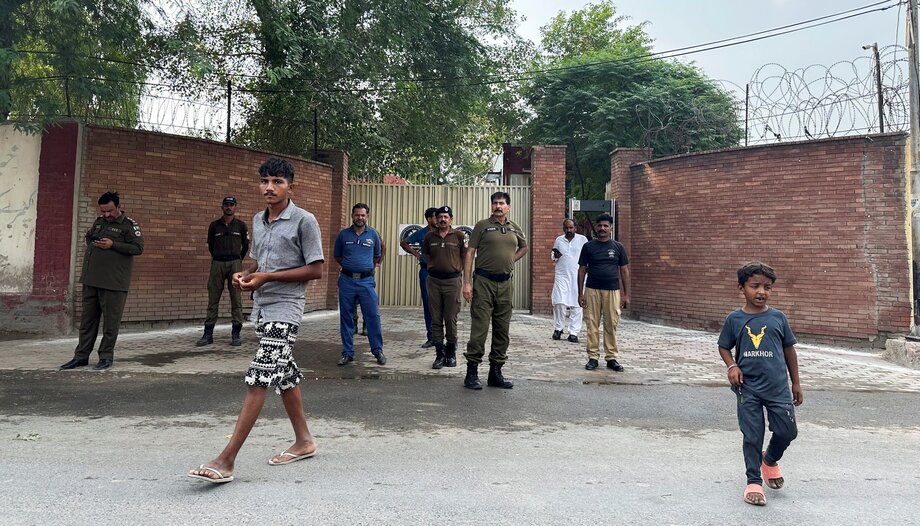
China and India
As already mentioned, India and China are at loggerheads over Kashmir, but that area is not the only source of conflict. For decades, the two countries have been at loggerheads over the demarcation of their adjoining borders along a line thousands of kilometers long. On May 5, 2020, at the height of the COVID-19 pandemic, the military on the border opened fire. A Chinese army group advanced across border territories they had agreed upon as common patrol lines. This move surprised India, which responded immediately.
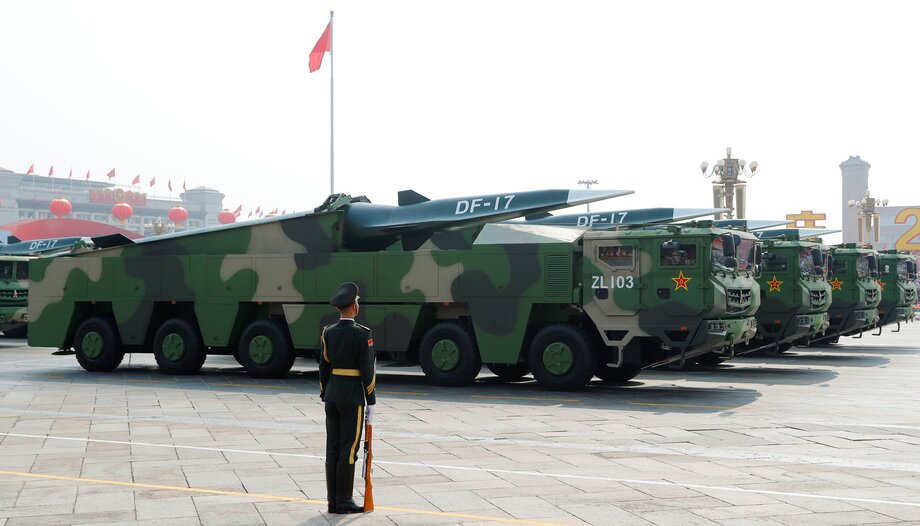
After a few months of fighting, the two sides signed a ceasefire agreement. However, on June 15, they clashed again when, according to the Chinese army, Indian soldiers entered their territory and set fire to their belongings. The fighting was particularly fierce and both governments quickly tried to bring the situation under control. To this end, the Chinese and Indian administrations and media concealed facts and manipulated information, leaving even the events of May 5 in the shadows.
Although there is no open armed conflict as such at the moment, groups from each of the nations are constantly carrying out incursions or attacks. At the diplomatic level, there is a climate of mistrust and there does not seem to be a fluid dialogue between the countries.
On the other hand, at the military level, the soldiers of both sides withdrew from the areas that provoked the confrontation in 2020. Despite this, according to the data of "International Crisis Group", China has more than 50,000 troops on the disputed line. By all appearances, India has a larger number of military agents in the area.
The experts of the "International Crisis Group" organization affirm that "the military reinforcement and the construction of infrastructures on both sides of the border, although technically they do not violate the agreements between the parties, break with their spirit and deepen mistrust". On this basis, they state that "the two sides should consider the possibility of establishing a high-level communication channel that would serve to clarify misunderstandings, complementing the existing hotlines".
The Korean conflict
The relationship between North and South Korea is also of international concern. After a three-year war in the mid-20th century, the two countries signed an armistice. Despite this, the two nations claim that the entire land of Korea belongs to them and threats are constantly crossed.
The international press often highlights the nuclear danger posed by the confrontation between these two powers, but there is currently no open armed confrontation. However, on January 15, 2024, North Korean leader Kim Jong Un publicly stated that he does not consider a peaceful solution to the conflict possible and proposed to officially declare South Korea a hostile state.
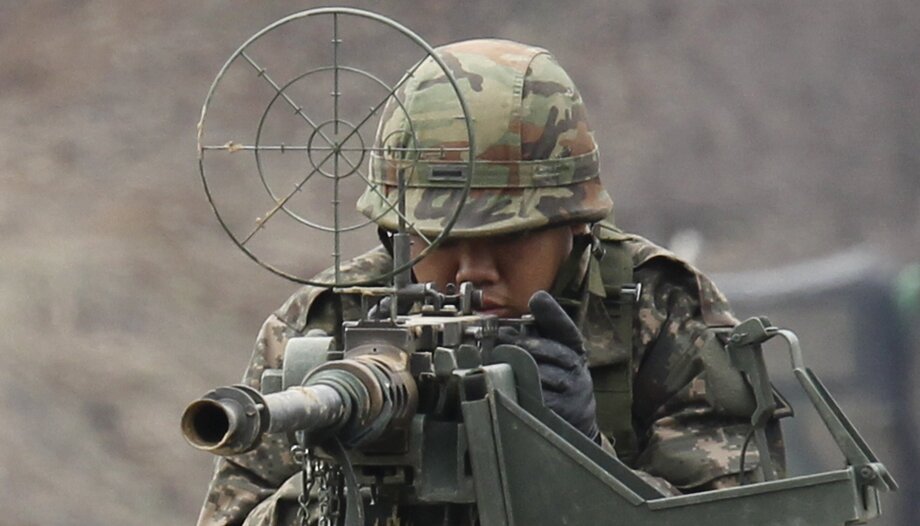
Ready?
Considering the amount of accumulated tensions, since the beginning of 2024 many politicians and rulers have warned citizens of a possible full-scale war. From U.S. President Joe Biden to Russian President Vladimir Putin, leaders frequently mention the need to be prepared for war.
So much so that in Denmark, for example, they have established compulsory military service for the country's women as well. For his part, Emmanuel Macron, President of France, made public statements asking the other European countries to consider the possibility of a war in case Russia continues to advance. These statements increase distrust among the population and provoke a sense of uncertainty for the future.
Media war
Another focus that is often forgotten is the battle in the media and social networks. The rise of new technologies has very positive consequences for the development of society, but it also has a negative impact.
The ease of sharing information, as well as the tools that allow you to modify or even create an image from scratch, make the Internet a hole in which it is difficult to distinguish reality from lies.
Peace calls
Against this backdrop, the words of Pope Francis in his message for the 2019 World Day of Peace become topical. In it he affirmed that "peace can never be reduced to a simple balance of force and fear". On the contrary, the Pontiff explained, "peace is based on respect for each person, regardless of his or her history, on respect for law and for the common good."
Every year the Bishop of Rome publishes a few words reflecting on peace. But, of course, his predecessors also advocated peace during their terms of office. A clear example of this is Pope Paul VI, a man who lived through the two World Wars. In his encyclical "Populorum Progressio" he made it clear that "peace is not reduced to an absence of war, the fruit of an always precarious balance of forces. Peace is built day by day, in the establishment of an order willed by God, which brings about a more perfect justice among men".
Joint liability
Both Pope Francis and his predecessors have seen law as a way to resolve conflicts. The current Bishop of Rome frequently calls for a "humanitarian law". Commenting on this issue, Dr. Maria Teresa Gil Bazo explains that "Law can and must put the person at the center. International law already contains bodies of norms concerning armed conflicts and the treatment of persons even in situations of war. But the law has limits and is sometimes violated. This is where the role of a society that demands real solutions from its rulers is most relevant.
In this regard, Francis denounced in 2013 "the culture of well-being, which leads us to think of ourselves, makes us insensitive to the cries of others, makes us live in soap bubbles, which are beautiful but are nothing, they are the illusion of the futile, of the provisional, which leads to indifference towards others, or rather, leads to the globalization of indifference" (Pope Francis' speech on July 8, 2013 during his visit to Lampedusa). And it is important to fight against this indifference because the answer to stop the current conflicts is to recognize the common responsibility to promote peace. A peace that is "laborious and artisanal", as Pope Francis defines it in his encyclical "Fratelli Tutti".


